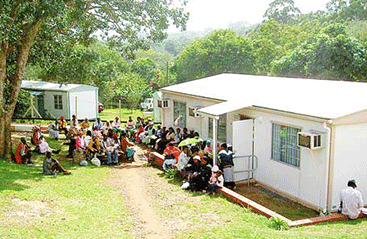Resource Spotlight: Providing the Providers

Copyright 2007 Massachusetts Medical Society. All rights reserved.
Although the [critical shortage of health care workers] is not new, recent international efforts to vaccinate children and to fight HIV/AIDS, malaria, tuberculosis, and other diseases have brought it into sharper focus. Donors are increasingly realizing that without enough trained workers to deliver drugs, vaccines, and care, pumping money into projects will not have the desired effects. The worker shortage derives from a combination of underproduction, internal maldistribution, and emigration of trained workers ("brain drain"). Fortunately, many African countries have begun attacking the problem by implementing innovative programs that may serve as models for other countries. Once effective pilot programs have been identified, scaling up will be the next hurdle: programs that are found to work on a small scale or in a particular environment may not be easy to expand or replicate.
Though additional health workers will be necessary for any solution, simply churning out more members of the workforce will not be enough. Workers will need to be adequately trained and equipped to make a difference to their patients. Increasing numbers of trainees may also overload the existing training programs in critical countries.
Adapted from author.
View this resource.
The HRH Global Resource Center has other resources on this topic including:
- Health Workforce in Africa: Challenges and Prospects
- Background Paper: the Human Resource Crisis in Health Services in Sub-Saharan Africa
- Addressing the Crisis in Human Resources for Health
For additional resources on this topic, visit the HRH Overview subject category.
Past Resource Spotlights
- 4409 reads




